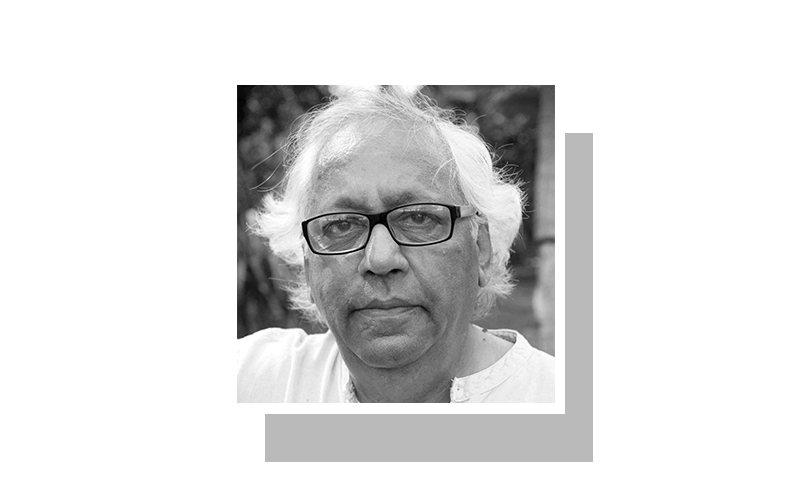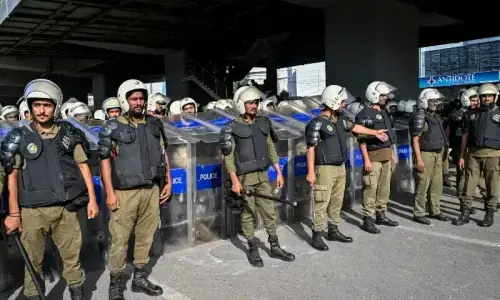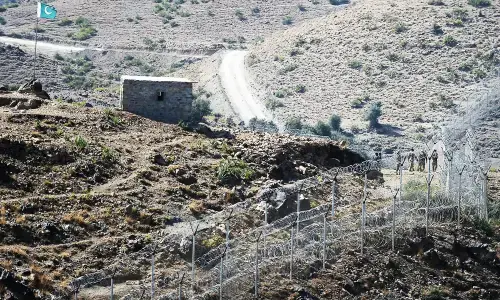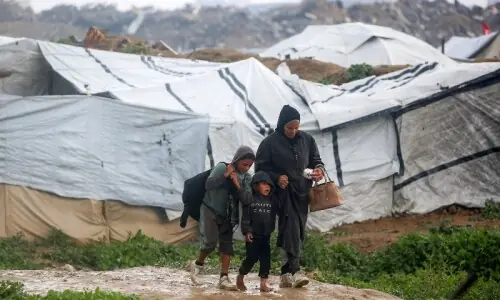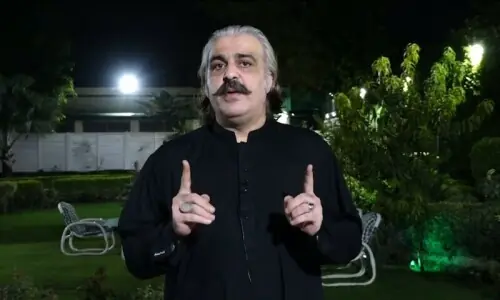THE first line of defence of a politician caught uttering something stupid is to say he was “quoted out of context”.
This is exactly what Sartaj Aziz did after he declared to a BBC journalist that Pakistan should not fight the terrorists who were active in Afghanistan, but did not attack targets in Pakistan. This is precisely the ‘good Taliban, bad Taliban’ line the army had been following until recently.
But coming at a time the Pakistan armed forces have finally declared war on all the baddies in the tribal areas, the prime minister’s foreign affairs adviser caused shock waves in the region and beyond by his blast from the past. His weasel words about the context cut no ice, especially after the BBC interview was gleefully aired time and again by local channels.
What is even more disturbing is the fact that in a rather lightweight federal cabinet, Sartaj Aziz had hitherto stood out as a safe pair of hands. But his faux pas was not the only one committed recently by a member of our foreign affairs establishment. Recently, we received news of an FBI investigation into allegations that Robin Raphel, a senior State Department official, had been passing secrets to Pakistan.
According to reports, the investigation was triggered by an intercepted conversation in which a Pakistani official was overheard saying he was privy to confidential US documents, thanks to a contact in the State Department. If true, this shows how out of touch our diplomats are with reality: after the Snowden disclosures, it is common knowledge that the American National Security Agency is tapping into emails and telephone conversations around the world.
The PM is constantly looking over his shoulder.
For an official to blurt out such sensitive information over his telephone is nothing short of criminal. And at a time when we are desperately short of friends in Washington, to lose an advocate for Pakistan is a huge disaster. Presumably, only a handful of people could have known about this secret channel, so finding out who was responsible for ‘exposing’ Ms Raphel should not be beyond the capabilities of our intelligence agencies.
Both these incidents reveal the vacuum at the heart of the Sharif government. After 18 months, the foreign affairs ministry continues to operate without a minister. Although it has an adviser (Sartaj Aziz), and a special assistant (Tariq Fatemi), to help the prime minister, there are anecdotal reports to suggest there is rivalry and tension between the two men.
All this only highlights the dysfunction in Islamabad today: here is a government elected by a sizeable majority that remains paralysed a year and a half after it was formed. True, it has had a rocky ride, thanks to ceaseless agitation by Imran Khan’s PTI and Tahirul Qadri’s PAT. But there was a honeymoon period last year when Nawaz Sharif had support from our vociferous media, and a relatively quiet opposition.
And yet, nothing happened to suggest any urgency or energy. Considering he had a lot of time to form a team that would be up and running if he won the election, Sharif has been remarkably ineffective, even by his own low standards of delivery.
When he was elected, the widely shared hope was that as an entrepreneur, he would be a reasonably effective manager. Dream on. We forgot that his business success was partly inherited, and largely the result of his access to loans from state-owned banks and his political clout. Thus, decision-making remains an agonising process for him.
And after being turfed out of office twice — and driven into exile by Musharraf — he is a paranoid man, constantly looking over his shoulder. It is a sign of his abiding insecurity that he surrounds himself with a handful of close aides led by his brother, Shahbaz Sharif. Those ministers and MNAs outside this inner circle have no access to their leader, and therefore little power.
So when the PTI/PAT protests broke out earlier this year, Sharif’s worst nightmare appeared to be coming true. Here was a conspiracy by the generals to destabilise his government through a street movement, and use the resulting instability to stage a coup.
But all conspiracy theories are not automatically wrong. In a recent article in America’s Foreign Policy magazine, a journalist who worked for Express Tribune describes in detail how her media group’s owner would apparently receive instructions from the ISI to support Imran Khan during the ongoing protests.
If this is indeed true, then clearly, the army wanted to weaken this government, if not necessarily remove it. However, the onus remains on Nawaz Sharif to prove that he deserves to be where he is. Worrying about something he cannot prevent will place him on the same footing as Asif Zardari who, as president, survived for five years, but did little else. Sometimes, mere survival is not enough.
Published in Dawn, November 29th , 2014

